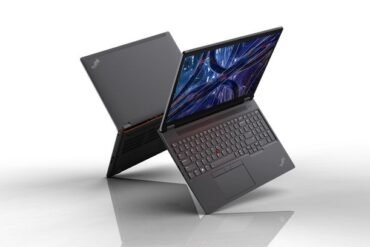Choosing the Right PSU for Energy-Efficient PCs
Table of Contents
Understanding Power Supply Units (PSUs) – Key Considerations
When it comes to building an energy-efficient PC, one of the most crucial components to consider is the Power Supply Unit (PSU). A PSU is responsible for supplying power to all the components of your computer, making it an essential part of your system’s overall performance and energy efficiency. To choose the right PSU for your energy-efficient PC, there are a few key considerations to keep in mind:
- Power Efficiency: Look for PSUs with high power efficiency ratings, such as 80 Plus Bronze, Silver, Gold, or Platinum certifications. These ratings indicate how efficiently the PSU converts AC power from your wall outlet to DC power for your components, reducing wasted energy and heat generation.
- Power Output: Determine the power requirements of your PC components, including the CPU, graphics card, and other devices. Choose a PSU that can provide enough power to support all your components comfortably, without running near its maximum capacity.
- Modularity: Opt for a modular PSU, which allows you to connect only the cables you need. This reduces cable clutter inside your PC case and improves airflow, resulting in better cooling and energy efficiency.
- Noise Level: Consider the noise level of the PSU, especially if you prioritize a quiet computing experience. PSUs with larger fans or fanless designs tend to be quieter, as they can dissipate heat more efficiently without the need for excessive fan speed.
- Brand and Quality: Stick to reputable PSU brands known for their quality and reliability. Investing in a reliable PSU from a reputable manufacturer ensures better performance, longevity, and protection for your PC components.
By considering these key factors, you can choose a PSU that not only meets the power requirements of your PC but also maximizes energy efficiency. An energy-efficient PSU not only helps reduce energy consumption but also produces less heat, contributing to a cooler and more stable system overall. So, take your time to research and select the right PSU for your energy-efficient PC, and enjoy a more environmentally friendly and cost-effective computing experience.
Efficiency Ratings and Certifications – Making the Best Choice
When it comes to choosing the right power supply unit (PSU) for your energy-efficient PC, efficiency ratings and certifications play a crucial role. These ratings and certifications indicate how well a PSU can convert AC power from the wall outlet into DC power for your computer components, minimizing energy waste and reducing electricity costs. Here are some key factors to consider when evaluating efficiency ratings and certifications:
- 80 PLUS Certification: The 80 PLUS certification is a widely recognized standard for PSU efficiency. It categorizes PSUs into different levels, such as 80 PLUS, 80 PLUS Bronze, 80 PLUS Silver, 80 PLUS Gold, 80 PLUS Platinum, and 80 PLUS Titanium. The higher the certification level, the more efficient the PSU is.
- Efficiency Ratings: Efficiency ratings indicate the percentage of input power that a PSU can convert into usable DC power. For example, a PSU with an 80 PLUS Gold certification is required to have a minimum efficiency of 87%, 90%, 87% at 20%, 50%, and 100% load, respectively. Look for PSUs with higher efficiency ratings to ensure maximum energy savings.
- Power Factor Correction (PFC): PFC is a feature that enables PSUs to draw power more effectively from the electrical grid. PSUs with active PFC have higher efficiency and power factor than those with passive PFC. Active PFC is preferable for energy-efficient PCs as it reduces energy waste and helps maintain stable voltage levels.
- Modularity: Modular PSUs allow you to connect only the cables you need, reducing cable clutter inside your PC case. This not only improves airflow but also minimizes power loss due to cable resistance, enhancing overall energy efficiency.
- Manufacturer Reputation: Consider choosing a PSU from a reputable manufacturer known for producing high-quality and energy-efficient products. Research customer reviews and ratings to ensure reliability and performance.
By selecting a PSU with a higher efficiency rating and the appropriate certifications, you can significantly reduce energy waste and contribute to a more sustainable computing environment. Additionally, an energy-efficient PSU can help you save on electricity bills in the long run. Therefore, it is crucial to weigh these factors carefully when choosing the right PSU for your energy-efficient PC.
Calculating Power Requirements – Determining the Perfect Fit
When it comes to choosing the right power supply unit (PSU) for your energy-efficient PC, one of the most important factors to consider is the power requirements of your system. By accurately calculating your power needs, you can ensure that your PSU is the perfect fit for your PC, providing enough power for optimal performance without wasting energy.
Here are some steps to help you determine the power requirements of your PC:
- Identify your components: Make a list of all the components in your PC that consume power, such as the processor, graphics card, hard drives, and fans.
- Find the power consumption: Check the specifications of each component to determine their power consumption. This information is usually provided in watts (W) or amperes (A).
- Add up the power consumption: Add up the power consumption of all your components to get the total power requirement for your PC.
- Consider future upgrades: If you plan to upgrade your PC in the near future, take into account the power requirements of the new components you will be adding.
- Factor in efficiency: PSUs have different efficiency ratings, typically ranging from 80% to 90%. To ensure your PSU operates at maximum efficiency, multiply your total power requirement by 1.25.
By following these steps, you can determine the power requirements of your PC and select a PSU that meets those needs. It’s important to note that getting a PSU with a higher wattage than your calculated requirement is not necessarily beneficial, as PSUs tend to operate most efficiently at around 50-70% of their maximum load.
Additionally, choosing a PSU with an 80 Plus certification can further enhance energy efficiency. These certified PSUs have undergone rigorous testing to meet specific criteria for efficiency, ensuring that they waste less energy and generate less heat.
Remember, selecting the right PSU is crucial for maintaining the energy efficiency of your PC. By accurately calculating your power requirements and considering efficiency ratings, you can find the perfect fit that not only provides enough power for your system but also helps reduce energy consumption and lower your electricity bills.
Modular vs. Non-Modular PSUs – Finding the Right Configuration
When it comes to building an energy-efficient PC, choosing the right power supply unit (PSU) is crucial. One of the key decisions you’ll face is whether to opt for a modular or non-modular PSU. Understanding the differences between these configurations will help you make an informed choice that suits your needs.
A non-modular PSU, also known as a fixed cable PSU, comes with a set of permanently attached cables. This means that all the cables, including those you may not need for your specific build, are permanently connected to the PSU. While this configuration is generally more affordable, it can lead to cable clutter inside your PC case. Unused cables may obstruct airflow and hinder proper cooling, potentially reducing the overall energy efficiency of your system.
On the other hand, a modular PSU offers flexibility by allowing you to connect only the cables you need. This helps reduce cable clutter, improving airflow and enhancing the overall aesthetics of your build. By eliminating unused cables, a modular PSU can also contribute to better cable management, making it easier to maintain a clean and organized PC case. However, modular PSUs tend to be slightly more expensive than their non-modular counterparts.
When considering which configuration to choose, it’s important to evaluate your specific requirements. If you’re building a budget-friendly PC and cable management is not a priority, a non-modular PSU may be suitable. However, if you value clean cable routing, improved airflow, and ease of maintenance, a modular PSU is the way to go.
Here are a few key points to consider when deciding between a modular and non-modular PSU:
- A modular PSU offers better cable management and airflow, resulting in improved energy efficiency.
- A non-modular PSU is generally more affordable but may lead to cable clutter and hinder airflow.
- A modular PSU allows for easier maintenance and a cleaner PC build.
- A non-modular PSU may be suitable for budget-conscious builders who prioritize cost over cable management.
Ultimately, the choice between a modular and non-modular PSU depends on your specific needs and budget. Consider the airflow, cable management, and aesthetics of your build to make an informed decision that will maximize the energy efficiency of your PC.
Future-Proofing Your PC – Anticipating Power Needs
When building or upgrading your PC, it’s essential to consider the future power requirements of your system. Anticipating these needs can help you choose the right Power Supply Unit (PSU) that will not only provide enough power for your current components but also accommodate any future upgrades. Here are some tips for future-proofing your PC’s power needs:
- Calculate your power requirements: Start by assessing the power consumption of your current components. Check their specifications and add up their power needs. Don’t forget to include peripherals like monitors, external drives, and USB devices. This will give you a baseline for the minimum power capacity your PSU should have.
- Consider future upgrades: Think about any upgrades you may want to make in the future. Upgrading your CPU, adding more RAM, or installing a more powerful graphics card can significantly increase your power demands. It’s important to choose a PSU that can handle these potential upgrades without straining its capacity.
- Look for efficiency ratings: PSUs come with efficiency ratings such as 80 Plus Bronze, Silver, Gold, or Platinum. These ratings indicate how efficient the PSU is at converting AC power from the wall outlet into DC power for your components. Opting for a higher efficiency PSU not only saves energy but also reduces heat and prolongs the lifespan of your components.
- Consider modular PSUs: Modular PSUs allow you to detach unnecessary cables, reducing clutter and improving airflow inside your PC case. This flexibility is particularly useful when upgrading your system as you can easily add or remove cables based on your new component’s power requirements.
- Invest in a reliable brand: Choosing a reputable PSU brand is crucial for the longevity and stability of your PC. Brands like Corsair, EVGA, Seasonic, and Thermaltake are known for producing high-quality PSUs that deliver consistent power and offer excellent customer support.
- Check for warranty: A longer warranty period indicates the manufacturer’s confidence in their product’s reliability. Look for PSUs with at least a 5-year warranty to ensure peace of mind and protection against any potential issues.
By considering these factors, you can future-proof your PC’s power needs and ensure that your PSU can handle current and future component upgrades. Taking the time to choose the right PSU will not only provide a stable and efficient power supply but also extend the lifespan of your PC.



























